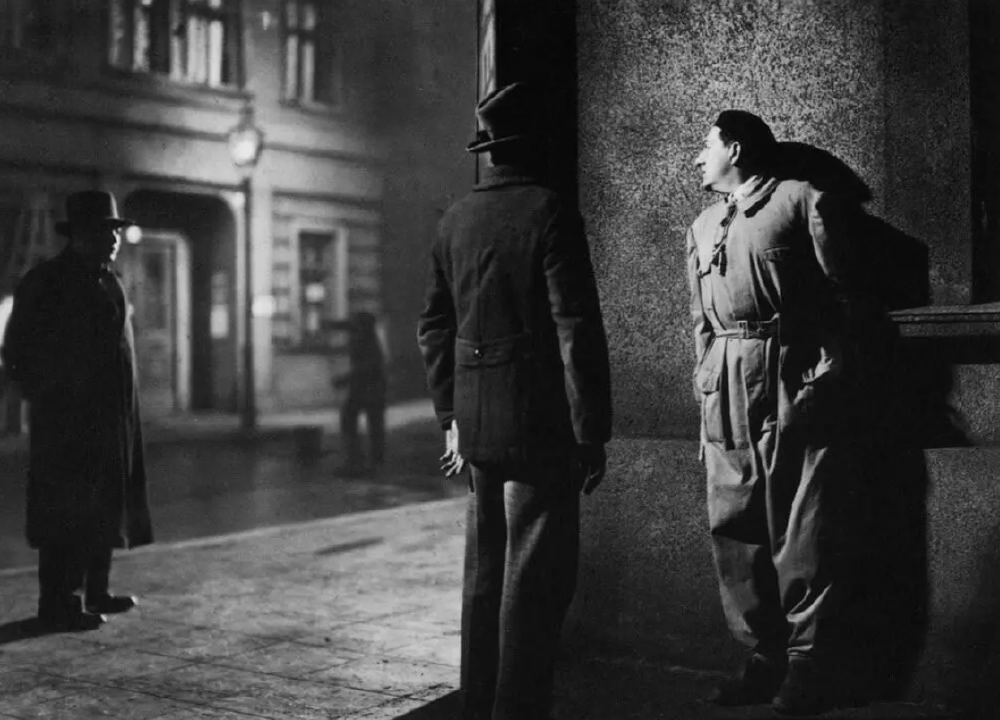Link Roundup: November 4, 2024

November 4, 2024
Fritz Lang, “My Film M: A Factual Report”
Generated Summary (ChatGPT)
In his essay on M, Fritz Lang reflects on his decision to base the film on real events, inspired by news reports of unsolved murders and the public's fear in Weimar Germany. Lang aimed to create a work that would educate and warn society, highlighting the dangers of unchecked violence and the lurking threat of criminal behavior. He used factual details to intensify the film’s impact, hoping to foster awareness and perhaps even prevent future tragedies by illustrating the ordinary settings where horror can unfold.
My Thoughts
It’s always surprising to me just how quickly film became… good and how quickly innovation in the medium slowed down. This 1931 film shows its age in a number of ways, but they mainly have to do with stylistic elements and genre features: the allowing of actual silence, for example. In terms of story, cinematography, and social commentary, M is incredible and far less dated than one would think.
Fritz Lang’s own thoughts on his film are fascinating. Two quotes stand out. The first:
a more substantial responsibility than the artistic reproduction of events: the responsibility of sounding a warning from real events, of educating, and in this way ultimately having a preventive effect. It would go beyond the scope of this brief comment to dwell on the means open to such a film to draw attention to the dangers that, given an incessantly growing crime rate, spell threat and, sadly, all too often, disaster for people at large, children and youngsters in particular; to illuminate the ordinariness and banality with which they announce themselves; to educate; and, most important of all, to have a preventive impact.
So much for the arguments that movies today are bad because they are too socially oriented. In fact, the exact inverse is true: films today fail when they assume a false stance of social justice that, in reality, serves only as a money-printing machine for studios. This is certainly not true of all films today (there is an embarrassment of good ones), but there is a tendency not toward actual social issues but toward pleasing the audience that has, really, run its course. Which leads to the second quote:
the film should give the impression at certain points of a moving spotlight, revealing with greatest clarity the thing on which its cone of light is directed at the time: the grotesqueness of an audience infected with a murder psychosis, on the one hand, and the gruesome monotony with which an unknown murderer, armed with a few candies, an apple, a toy, can spell disaster for any child in the street, any child outside the protection of his family or the authorities.
What is wonderful about M is that it is truly an uncomfortable indictment of society’s contradictions rather than what we get today: movies that are about one edgy douche “against” “society.” Ultimately, Beckert’s terrible actions are just a foil, a machine error that allows his society to fully reveal itself as a character, and an unreliable one. And it’s interesting how purposeful Lang was in implicating the audience in that unreliability.
Michael Engen, “Building My Resume in HTML using Eleventy”
Generated Summary (ChatGPT)
Michael Engen describes building his online resume using HTML, CSS, and Eleventy, a static site generator. He outlines the benefits of this approach, like flexible layouts, easier version control, and printable PDFs. He structures his resume data using JSON, integrates it with HTML templates, and styles it using CSS grid layouts. To streamline updates and maintain a responsive design, he leverages Eleventy’s local server and Puppeteer for automated PDF generation. His project emphasizes a web-native resume that's accessible and adaptable.
My Thoughts
This is just very cool. As anyone who reads my posts knows, I’m an enthusiast for markup languages and, more specifically, interesting use cases for them. I will now be following this tutorial and porting it over to Hugo, haha.